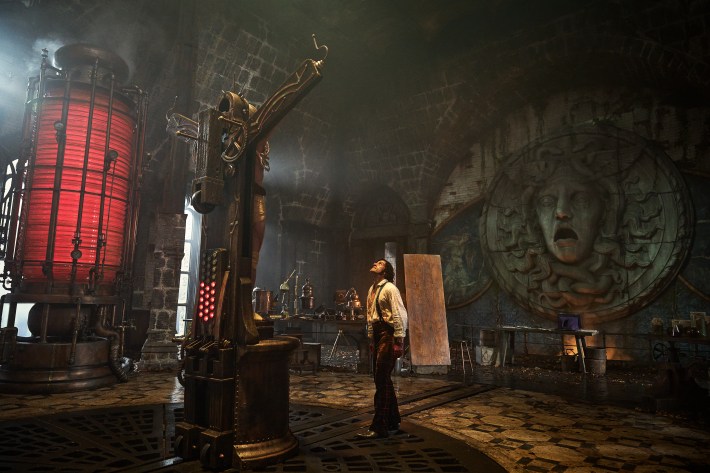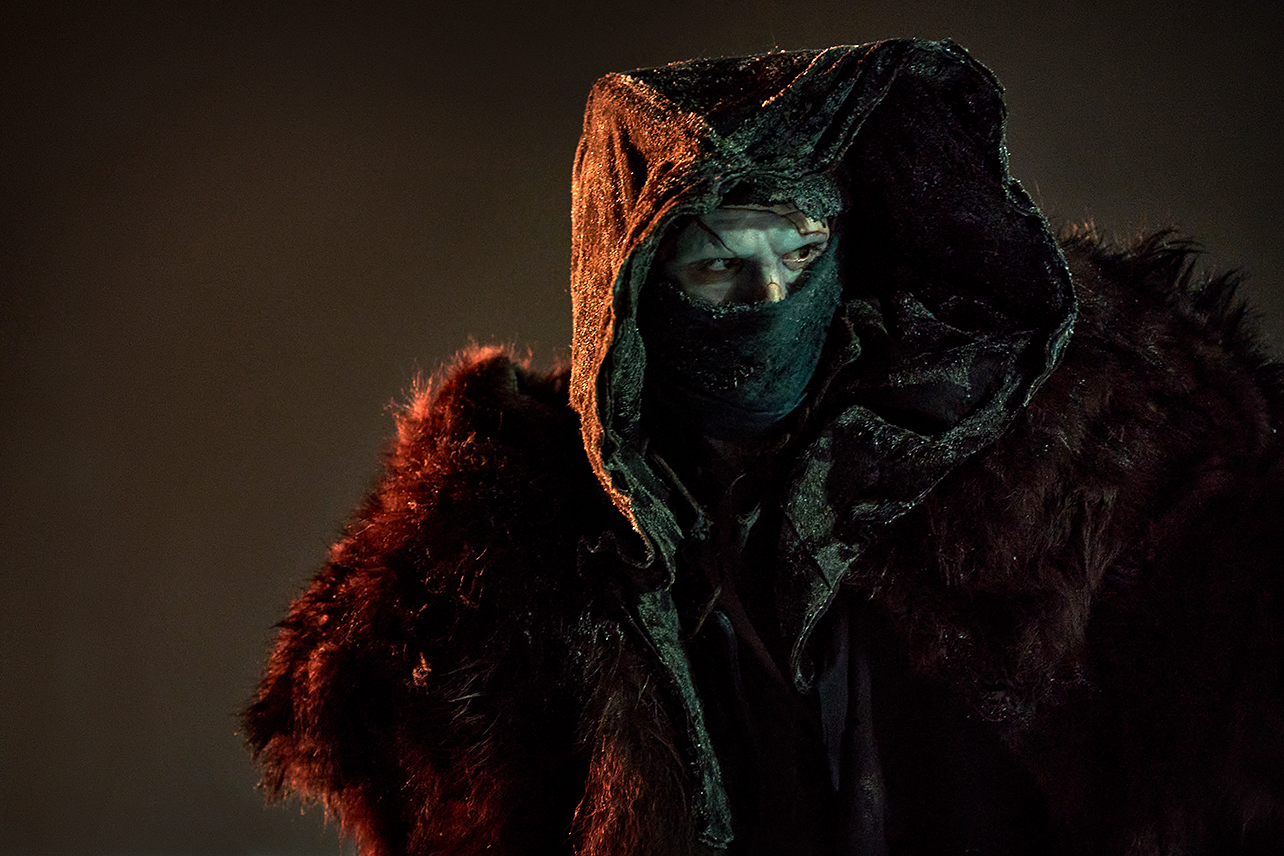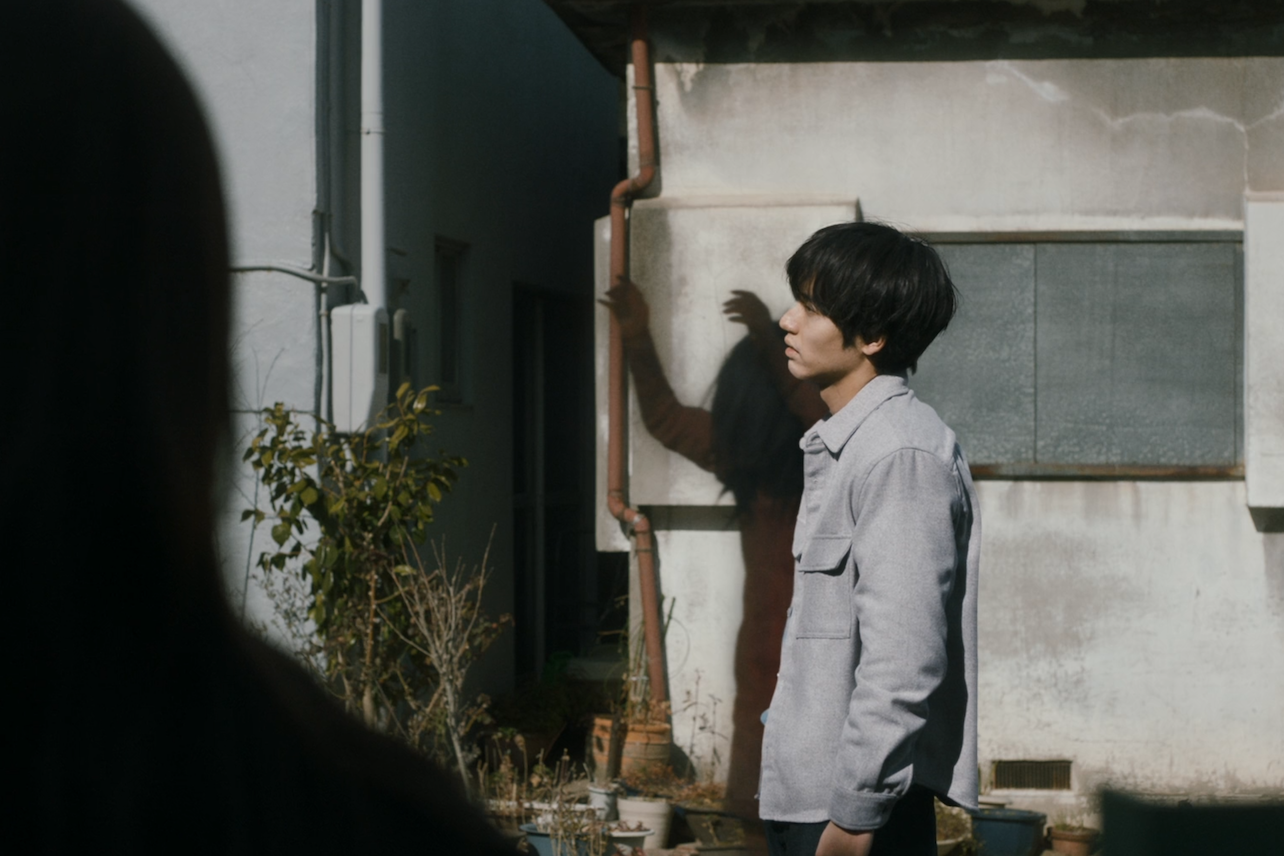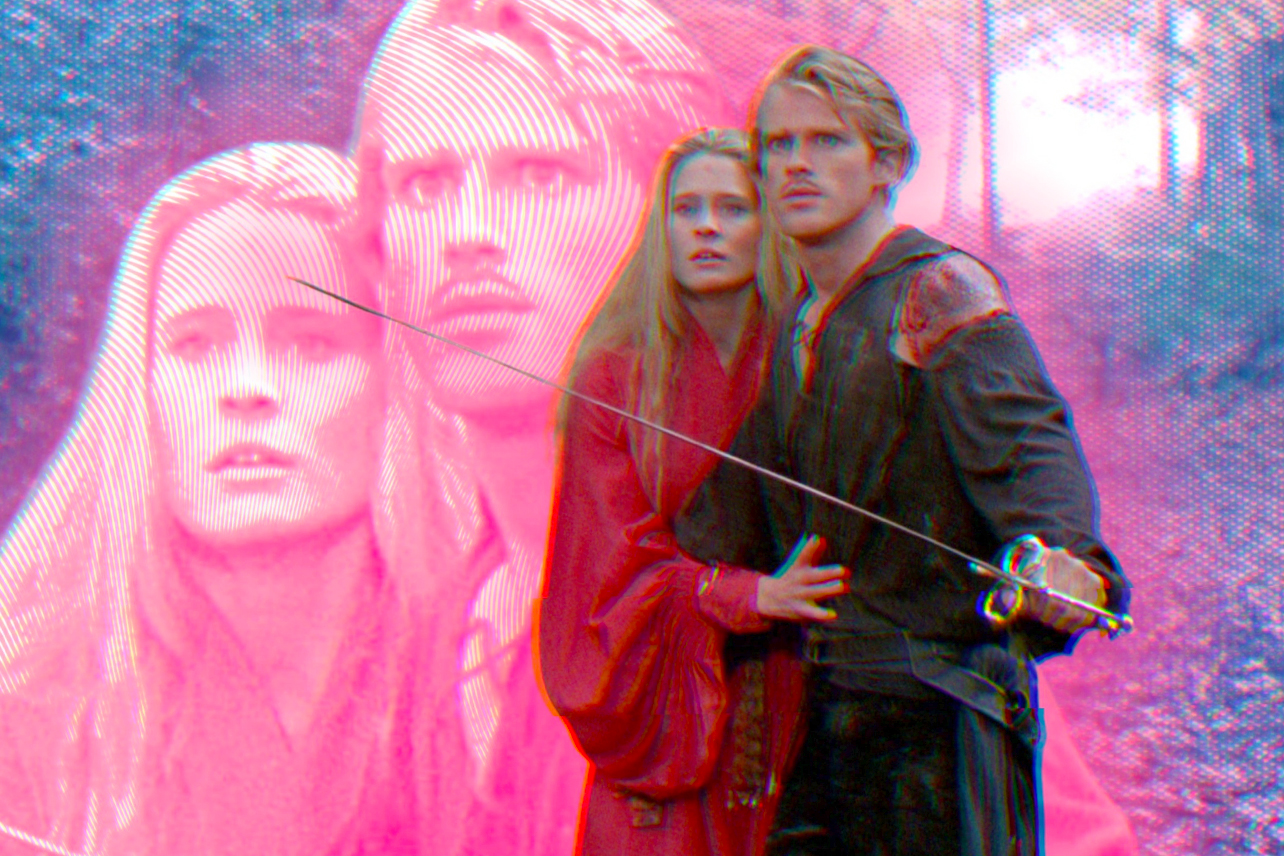Frankenstein
Writer/Director: Guillermo del Toro
Cast: Oscar Isaac, Jacob Elordi, Mia Goth, Felix Kammerer, Lars Mikkelsen, David Bradley, Charles Dance, Christoph Waltz
During his now-legendary tour of his private collection of memorabilia and lore in the California home he calls "Bleak House," Guillermo del Toro likened the place to "an exploded view of my brain." I've never forgotten that, not just because it's a nice phrase, but because, for del Toro, it was important to help us, as fans and cinephiles, understand the context for the kinds of stories he likes to tell. Here were his dreams, his nightmares, his hopes, his inspirations, blown up to life size in a space through which you could walk, work, and dream anew.
Understanding this about del Toro helps you to understand his films, which often emerge as phantasmagoric journeys into some kind of obsession, whether that obsession is romantic, selfish, malevolent, or all of those simmered in a gorgeously macabre stew. Frankenstein, a passion project del Toro has been dreaming of for much of his life, is absolutely that kind of film — but it's also something more. All of the expected del Toro touches are present here, from the attention to detail in the monster to the lavish production design, but like the two characters who lead this narrative, there's also an obsession with digging deeper, with finding something more, not just thematically but emotionally.
Over the years, del Toro has excelled at showing us an exploded view of his brain. With Frankenstein, we get an exploded view of his soul.

Hewing much more closely to Mary Shelley's original novel than the Universal films which popularized the story on the big screen, Del Toro's Frankenstein picks up in the Arctic, where a group of sailors stumble upon the bedraggled, paranoid form of Dr. Victor Frankenstein (Oscar Isaac). Taken in by the crew after they've seemingly rescued him from a terrifying creature lurking out on the ice, Victor offers to tell the captain his story, to explain how he got all the way out here, and what that creature really is.
From there, just as Shelley did, Del Toro flashes back to Victor's life before his creature. We see his tragic childhood, his overbearing father (Charles Dance), his early enfant terrible days in medical school, his fixation on his soon-to-be sister-in-law Elizabeth (Mia Goth), and his encounter with a wealthy benefactor (Christoph Waltz) who seeks to fund his experiments in reanimating dead tissue. You know the rest, or at least the broad strokes of it: Victor builds his creature (Jacob Elordi), it comes to life, things go very, very wrong for everyone involved, and both maker and monster have to face the realities of life, death, and regret.
Visually, the film is a feast, just as you'd expect. From the early scenes of Victor's childhood, which play like goth Barry Lyndon, to the fevered, frantic sequences as the doctor finally secures his lab, Del Toro has poured all of his powers into building this parallel world of gods and monsters. Faces stare at you from statuary, Victor's red gloves evoke constant blood on his hands, and everywhere there are traces of a new world of scientific progress begging to be born, from 19th century indoor plumbing to the ironclad hull of an arctic exploration vessel. There is everywhere a sense that Victor, his world, and we as viewers are on the precipice of something, and Del Toro's direction coupled with Alexandre Desplat's haunting, gorgeous score, drive that point home until at last the film plunges us over a cliff.
It's here, once the relationship between creature and creator begins to grow and evolve, that Del Toro reveals his true design for his Frankenstein, and it's about so much more than outstanding production design. As someone who creates for a living, who's made monsters of his very own, Del Toro has an innate understanding of Victor's obsession, of his frenzy to do something new, groundbreaking, and more than a little frightening. Giving this story to one of our greatest genre auteurs means that the metaphors of art and creativity are right there on the surface, but then Del Toro asks a crucial question: What happens beyond creation? If you're lucky enough to get hold of that Promethean spark, and actually achieve your dreams, what do you do next?
These are the answers with which Oscar Isaac must wrestle as Victor, and he rises to meet the complexity and, yes, the monstrousness of the character's crisis of faith, confidence, and desire. The hubris of man is baked into the story of Frankenstein, but Isaac and Del Toro are not interested in treading the same paths as the films that came before, at least not completely. They want more out of Victor, out of his own understanding of what he's achieved and what it truly means, and so Isaac's performance becomes one of near-constant revelation and evolution. He resists these changes, fights against the understanding of what he's become, and yet he's always barreling toward his fate, his intelligence outweighing his ability to avert his eyes.
It's a remarkable performance, like every other one in the film, but the true star of Frankenstein is Elordi. His costume, all pallid skin and incisions lacing his musculature, does not mask his angelic face or expressive eyes, and like Karloff before him he uses those eyes to great effect. While Isaac has the job of playing a man who slowly realizes he's become a monster, Elordi must play a man who was born a monster, and comes to understand what that means as both a curse and a strange blessing. He's a collage of humanity, made up of disparate parts and placed in a torturous state of being that's neither human nor animal, left to slowly come to an understanding of his reality by himself. What does it mean to literally know who made you in the flesh? What happens when a creation is not perfect, but abandoned, when that creation can think and feel and, eventually reason? What does it mean to live in a world that neither wants nor tolerates you? All of these questions are constantly unfolding behind Elordi's heartrending eyes, and when combined with the graceful physicality he gives the creature, it makes for one of the year's best performances in any genre.
Guillermo del Toro loves his monsters, not just because they're neat and fun to play with, but because they represent all of our insecurities, imperfections, and beautiful contradictions. With Frankenstein, Del Toro has delivered his most thoughtful meditation on these ideas yet, wrapped it all in a lavish production, and bared his very soul for us to see. It's a cinematic triumph, and if you can, you should absolutely make space to see this one on the big screen.






